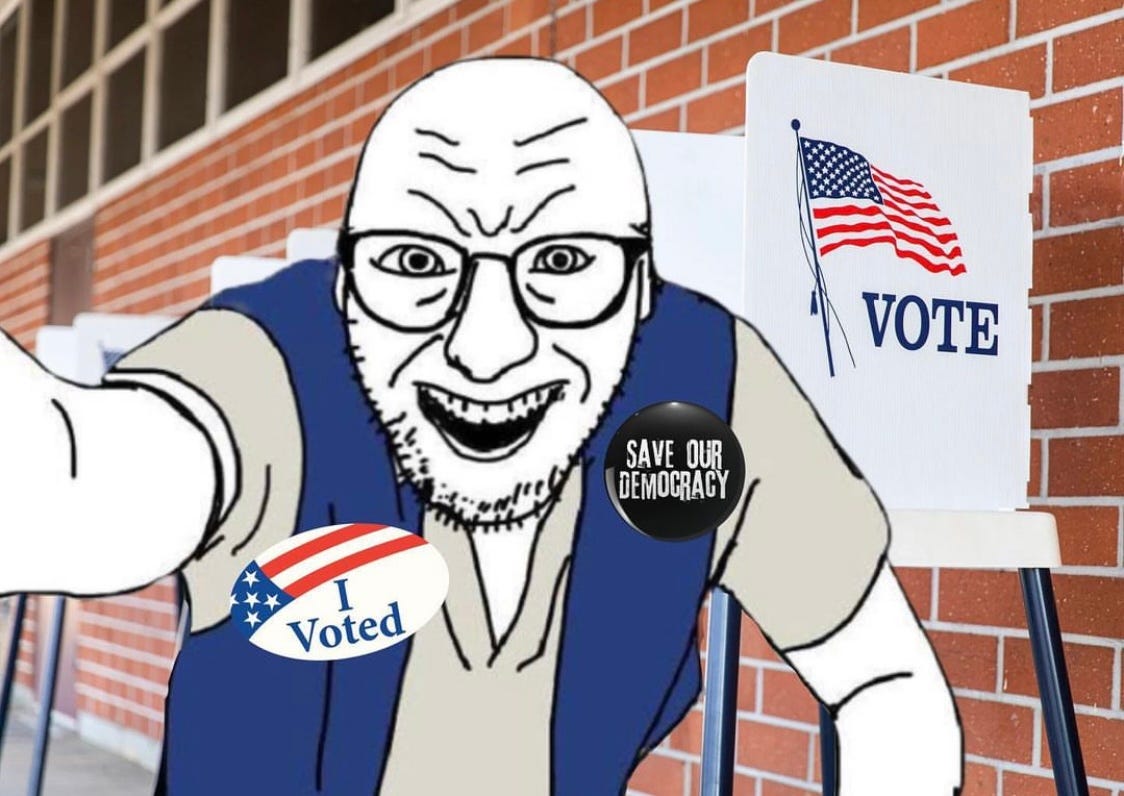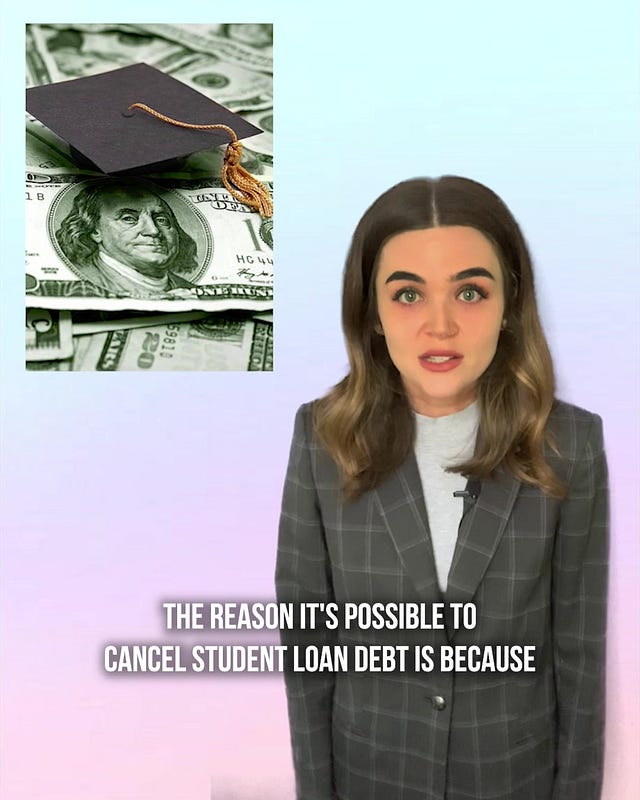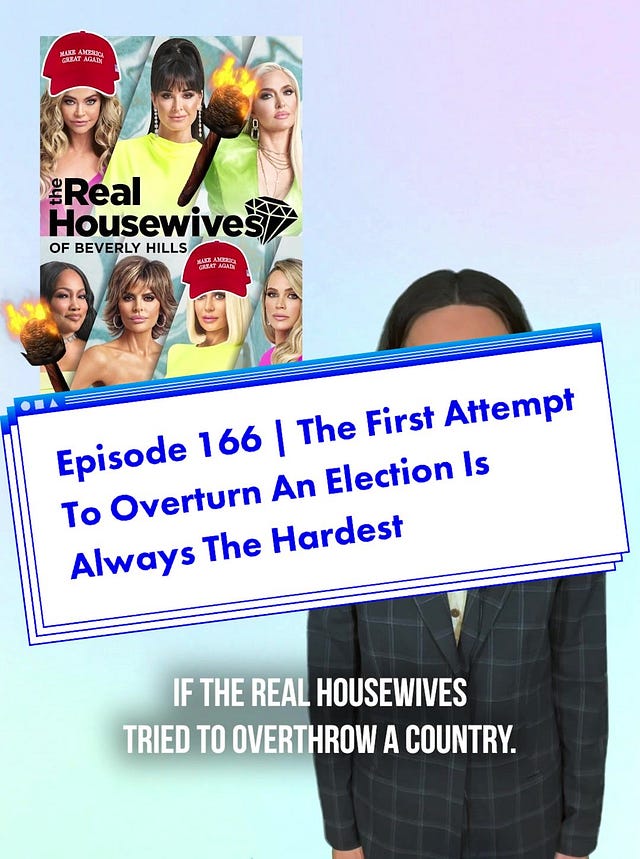to support my work, consider becoming a paid subscriber:

G.L. DiVittorio, creator of the satirical news web series “The Pocket Report,” had only ever pushed her followers to educate themselves and vote.
So when she asked people in March to mail pens to President Joe Biden pressing him to forgive student loans “because he must not have a pen to sign the executive order with,” she was pleasantly surprised when thousands heeded the call.
“It’s fascinating, and it’s a good sign that people are willing to act,” the writer and comedian said. “I think it helps that the ask was a little cheeky – it was appropriate enough that it couldn’t be seen as disrespectful, but it was annoying enough that some White House staffer complained to the New York Times about it.”
After the NYT wrote about it in April, a second wave of pens were delivered to the West Wing.
It’s one example of how Gen Z, more than any other generation, is realizing its potential early and getting involved. It was reflected in the polls: November’s midterm election was the second-highest youth voter turnout in 30 years, with nearly 30% of 18-29 year olds voting this midterm cycle.
With that turnout, there was a flurry of progressive victories that snuffed out the forecast for a “red wave”: Democrats retained control of the Senate, voters in three states elected their first woman to serve as governor, Maryland elected its first Black governor and Congress gained its first Gen Z member. And in response to the Supreme Court’s June decision overturning Roe v. Wade, several states codified abortion rights.
Taylor Lorenz, a digital culture columnist for the Washington Post, said the nature of the internet today means young people are more informed than previous generations.
“Young people are on the same internet as everyone else, and they're hyper aware of political things going on. They're on the internet every day, and so they're consuming far more information than any person that came before them,” Lorenz said. “The average amount of information that a 16 year old consumes in 2022 is far more than what 16 year olds 30 years ago would have consumed.”
Politics is more social now than ever before, DiVittorio added, which is a driving factor in Gen Z’s increased involvement.
“Politics was never a polite thing to talk about in public, so naturally you heard less about it and there were less opinions being shared. Whereas now, it’s part of people’s social circles, their identities and certainly their online presence. It’s kind of unavoidable,” she said.
That “unavoidable” political discourse in turn molds (and can warp) young people’s perception of political issues. But Lorenz said that while political content dominates all platforms, each platform has different focuses.
Many people making content on TikTok aren’t experts in their field, she said; they are average users who want to comment on an issue affecting them. Political influencers like Christian Walker, though, want to sway public opinion with their commentary. Political news channels on TikTok want to inform people, but also to convince them they are an authority. All political content, however, is an opportunity for attention, Lorenz said.
“TikTok as a platform is much more powerful than television because it’s inherently more interactive,” Lorenz said. “On TikTok, you’re consuming [media] but you’re in this different mode where you’re also creating and commenting, so it makes it easier for users to take action…it's very easy for you to just click on and sign a petition, or amplify the video, or comment.”
The Democrats have started to notice TikTok's potential, as evidenced by the White House briefings for influencers on issues like the Ukraine war as well as a Democratic National Convention-sponsored influencer trip.
Lorenz said what seems to be more effective than a non-political influencer like Charli D'Amelio urging fans to go vote are collectives, activist networks and content creators who have an existing relationship with politics.
Ultimately, she said, politicians have to give their constituents what they want.
“If you don’t have policies that resonate with young people, it doesn’t matter how many memes you put out, you have to be speaking to the concerns of young people,” Lorenz said. “Something that made Biden popular among TikTokers was student debt relief. Doing something as a policy makes you way more popular on TikTok than briefing a hundred influencers on war strategy.”
Adding humor into the mix historically helps, rather than hurts, engagement, she added. It can be traced back to political cartoons, and, in more recent history, satirical TV news shows like the Daily Show, the Colbert Report and Last Week Tonight made politics accessible, and even fun, for the masses.
Satirical TV news is what DiVittorio, who has a background working with political organizations and campaigns, originally modeled the Pocket Report after in late 2020. She soon developed a quicker style and broke away from traditional TV writing, which she said allows for more topical analysis.
“I like to punch up and to the left in the sense that there’s always something going on at the surface level and then there’s always something going on deeper than that, and I think the deeper reason is always much more interesting,” she said.
The root of most issues are simple, which DiVittorio said makes things easier to write about and is helpful to viewers because it provides a fresh way to look at topics without exhausting them.
“What I try to do with the Pocket Report is avoid the terms and points of view that have become saturated and bring up a different angle to make it more digestible and something that you can have a thought process about,” she said.
In August, Biden announced his plan to forgive up to $20,000 per person in student loans. DiVittorio said while she can’t take credit despite all the pens, “all those little things help.”
“It’s definitely made me more aware of what’s possible with a following and made me think of more ideas,” like potentially adding in a plea to close Rikers Island, she said.
DiVittorio, who works in political consulting by day, hasn’t been able to devote as much time to the Pocket Report lately – during midterms week, she was in Philadelphia campaigning for John Fetterman, and this past week she was busy canvassing for Sen. Raphael Warnock’s reelection in Georgia before the runoff election.
“It’s difficult to know what's more impactful, this online thing or this more traditional policy/outreach/political action stuff – one is very tangible and one is not tangible, with the exception of Pens for Biden,” she said.






